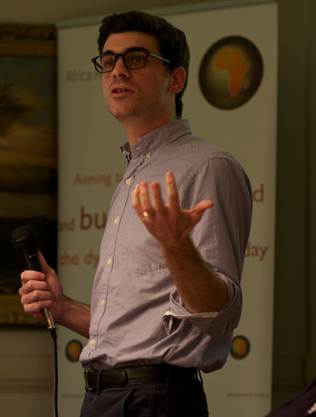In 2015 the 17 UN Sustainable Development Goals (SDGs) were ratified by 193 of the UN member nations. These goals set ambitious targets to address worldwide issues of sustainable development, such as social inequality, responsible and inclusive economic development and environmental protection. They were created for everyone, everywhere and have been described as ‘the closest thing the world has to a strategy’.
Who will be responsible for ensuring we achieve these goals and how will they be achieved?
In the realm of international agreements, national governments have traditionally been responsible for local implementation. But a combination of profound global demographic shifts and a sense that national governments are increasingly incapable of tackling complex global challenges due to domestic political wrangling has given rise to a global movement to place cities at the heart of efforts to tackle both local and global challenges. This movement, which is coalescing around a constellation of city-to-city networks (such as ICLEI, C40 and the Global Parliament of Mayors), is now grappling with the challenge of ‘localising the SDGs’. How can we usefully translate this global agenda into local practice in a way that meaningfully transforms lives?
This is the question we are working to answer through a new University of Bristol funded project on Localising the SDGs for Bristol, in partnership with the Bristol Green Capital Partnership (BGCP), Bristol City Council and Overseas Development Institute (ODI).
Bristol is a city of great wealth and has strong environmental credentials as the former European Green Capital in 2015. The city is also home to a vibrant cluster of ‘green economy’ companies and environmental charities. However, Bristol also faces many challenges. Homelessness is twice the national average; nearly 16% of Bristolians live in England’s 10% most deprived areas; and Bristol health outcomes are worse than the national averages for many indicators (e.g. life expectancy, suicide, childhood obesity, smoking).
These are precisely the kinds of challenges that the Sustainable Development Goals are encouraging us to confront and tackle by 2030. Importantly, ‘sustainability’ isn’t just about the environment; it is also about building a prosperous and inclusive economy that leaves no one behind. Inclusion, equality and opportunity are essential to achieve sustainability.
Our research seeks to identify and support mechanisms for embedding the SDGs in local planning and governance processes by engaging with a wide range of stakeholders in the city.
Bristol City Council, a pivotal stakeholder is currently working to bring partners together for a new One City Plan. This Plan seeks to use the collective power of Bristol’s key organisations to achieve a bigger impact by supporting partners, organisations and citizens to help solve key city challenges and improve the lives of Bristolians across the city. The core themes behind this plan align with the SDGs and it provides a great opportunity for Bristol to lead nationally and internationally on the SDGs. As this plan comes together we aim to input insights from other cities around the world that are also working to implement the SDGs.
 |
| Los Angeles Mayor Eric Garcetti committing to the SDGs for LA |
To that end Allan Macleod, the Cabot Institute SDGs Research & Engagement Associate, recently attended the Global Ambition–Local Action Conference hosted by the Occidental College in Los Angeles. The conference focused on what cities can and are doing to address the SDGs and how they can mobilise data and resources to further their work. It was a very informative experience, but was it was also inspiring to see how Bristol compares to some of the largest and most important Global Cities. It was clear that Bristol has developed a solid foundation for SDG localisation and has a real opportunity to become global leader in implementing the SDGs. In doing so the city will both confront the need to develop a more inclusive and sustainable local economy while contributing to global efforts to tackle transboundary problems together with other cities.
This is a particularly exciting time to be working collaboratively on implementing the SDGs in Bristol as the city will be hosting two major conferences in 2018: the Data for International Development Festival at the end of March and the Global Parliament of Mayors Annual Summit in October. Both these events provide Bristol with an opportunity to showcase its leadership and demonstrate its credentials as an important international city that is working to improve the lives of all its citizens.
What experiences do you have of the SDGs abroad or in Bristol? Do you have an ideas or lessons that can be applied to Bristol? If you have any further questions or comments, feel free to get in touch at Allan.macleod@bristol.ac.uk.
———————————————-
This blog is written by Dr Sean Fox, a Lecturer in Urban Geography and Global Development at the University of Bristol and Allan Macleod, Cabot Institute SDGs Research & Engagement Associate.
 |
| Sean Fox |

